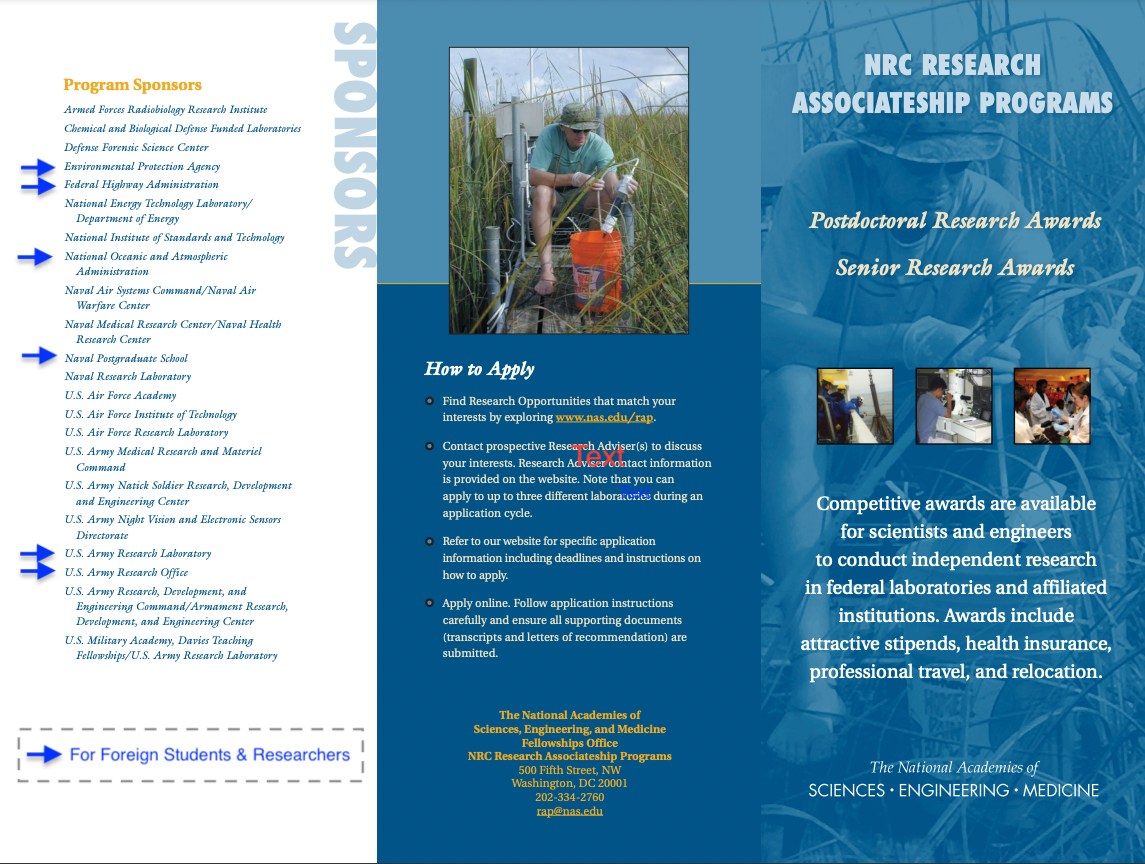NRC Research Associateship Programs
09 June 2023

NRC Research Associateship Programs for Foreign Students and Research Scholars - Opportunities for doctoral degree holders in Science and Engineering.
Graduated in 2012 from the Department of Chemical Engineering as the Gold Medalist, Pallavi Luharuka is a shining example & true inspiration for entrepreneurs in Jadavpur University. During a recent discussion with the GJUAF team, Pallavi shared her incredible journey. With over a decade of experience in the Oil & Gas sector and a strong commitment to sustainability and accessible technology innovations, she founded her own company, Royal Bengal Greentech (RBG) in Kolkata, West Bengal. After graduating from the Chemical Engineering department, Pallavi worked at Honeywell while simultaneously pursuing her MBA. In June 2022, she established RBG with the ambitious goal of creating sustainable employment opportunities on a large scale in India.
Eligibility:
Applicants should hold, or anticipate receiving, an earned doctorate in science or engineering.
Degrees from universities abroad should be equivalent in training and research experience to a degree from a US institution
Awards are available for scientists and engineers at all stages of their career.
Foreign nationals are open to following laboratories and Institutions
About NRC Research Associateship Award:
Awards are initially for 12 months with renewal for a second or third year determined by evaluation of the Associate’s progress, and the availability of funding; Senior awards may be for shorter periods.
Summer Faculty awards are for 8-14 weeks, renewable for up to 3 successive summers.
Research is conducted in collaboration with a Research Adviser who is a member of the senior professional staff at the laboratory. Research Advisers provide guidance, advice, and support for the Associate during their tenure.
Stipend and Benefits:
NRC Research Associates receive annual stipends ranging from $45,000 to $80,000 for recent doctoral recipients and are proportionally higher for Senior Associates.
NRC Research Associateship Programs provide health insurance, relocation benefits, and an allowance for professional travel.
The host laboratory provides research facilities, equipment and funding for supplies to support the Associate’s research.
Selection Process:
Applications are reviewed by panels of distinguished scientists and engineers representing the fields of Chemistry, Earth, Ocean and Atmospheric Sciences, Engineering, Mathematics and Applied Sciences, Life Sciences, and Physics.
Evaluation is based on the applicant’s academic and research record, letters of recommendation, and scientific merit of the proposed research.
Reviewers assess the quality of an application, the likelihood for success, and the contribution of the research to the mission of the sponsoring federal laboratory.
Awards are made based on the ranking assigned by the review panel.
How to Apply:
Find Research Opportunities that match your interests by exploring www.nas.edu/rap
Contact prospective Research Adviser(s) to discuss your interests. Research Adviser contact information is provided on the website.
Note that you can apply to up to three different laboratories during an application cycle.
Refer to the website for specific application information including deadlines and instructions on ‘how to apply’.
Apply online. Follow application instructions carefully and ensure all supporting documents (transcripts and letters of recommendation) are submitted. https://sites.nationalacademies.org/PGA/RAP/PGA_169290
Disclaimer:
GJUAF team found this opportunity and wanted to let research scholars in Jadavpur University. The GJUAF team does not have more information than what is reported in the website. A representative from NRC Research Associate Programs provided the information for foreign students and scholars. GJUAF team requests applicants to consult the website and NRC contacts for further details. Note that the GJUAF team would not be able to help further in applications. For immigration and Visa-related questions, please contact Peggy Wilson (pwilson@nas.edu).



